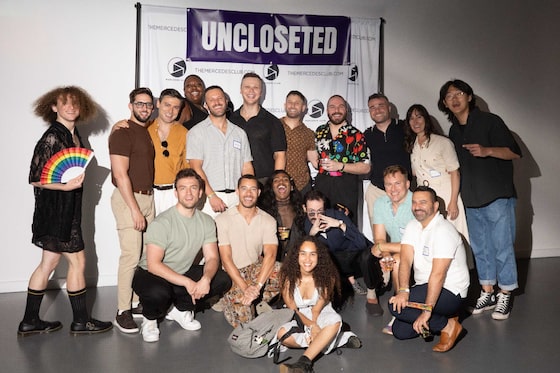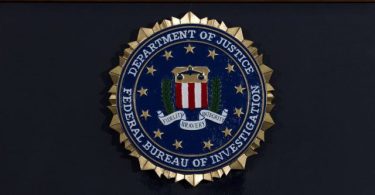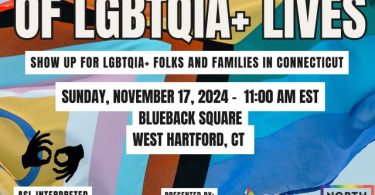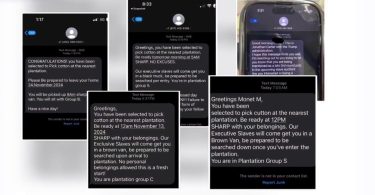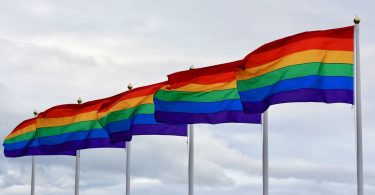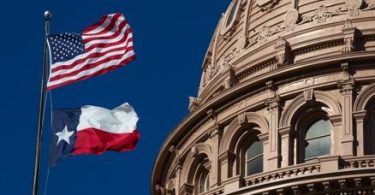Friends and supporters of Uncloseted Media gather at The Mercedes Club in New York City for the publication’s summer fundraiser.Kenny Wassus
Spencer Macnaughton is the founder and editor-in-chief of Uncloseted Media. He is also an adjunct professor at New York University, where he teaches LGBTQ journalism.
This week I launched Uncloseted Media, an investigative LGBTQ news publication that aims to expose the modern anti-LGBTQ ecosystem in an effort to make life just a bit safer for the LGBTQ community, and specifically the most marginalized – like the more than 40 per cent of queer kids in the U.S. who seriously considered suicide in the past year.
When I was a kid, instead of dreaming about my future, I was grappling with how to emerge from my own closet. It started one afternoon when, in Grade 3, I was home sick. I was watching an of episode of Maury Povich where guests were using anti-gay slurs toward a same-sex couple.
“That’s me,” I remember thinking as I watched the couple.
I wasn’t confused because I had been implicitly aware of these feelings for a while. But hearing these hateful words scared me because, suddenly, I knew my life was going to be harder.
From age 8 to 16, I did everything I could to stay in the closet. I’d get wasted at park parties and hook up with girls. I’d lie about the stereotypically gay things I loved: “I listen to Blink 182, not Avril Lavigne,” I’d tell my friends. I’d modify my walk, the tone of my voice and even the clothes I wore so I didn’t come across as “too gay.”
I eventually came out to friends and family when I was 16 years old, and by the end of high school I had my first boyfriend, my first (enjoyable) kiss, and was met with acceptance by my parents and friends.
While my coming-out experience wasn’t easy, I knew that growing up in a liberal Toronto neighbourhood with an actor mom and a professor dad put me in a privileged position. Canada is notoriously more progressive than the U.S. when it comes to LGBTQ rights. We legalized gay marriage in 2005, 10 years before the U.S. did in 2015. We have significantly stronger legal and health care protections for transgender folks. And we were ranked as the safest country in the world for LGBTQ travel in 2023, compared with the U.S., where I’ve lived since 2014, which ranked 25th.
In the U.S., generations of queer kids have struggled with mental-health issues in part owing to high levels of familial rejection. This explains why up to 40 per cent of homeless youth identify as LGBTQ. This stat didn’t surprise my boyfriend, whose mom – an evangelical Christian in Virginia – reacted to him coming out in his late teens by saying that him being gay was the equivalent of him getting “run over in a car crash and not surviving.”
Finding out why these injustices and disparities existed for LGBTQ people south of the border was an integral reason for why I went on to study journalism at Columbia University. Since graduating, I’ve spent a decade working in mainstream media in New York, where I’ve written and produced LGBTQ-themed stories for 60 Minutes, The Wall Street Journal, Rolling Stone, The New York Times, The Guardian, NBC News and beyond. I also teach LGBTQ journalism at New York University.
Even though I’ve told many queer stories, it became clear to me that there is a huge gap in the U.S. when it comes to journalism that investigates the money, the power and the people that are fuelling the hateful rhetoric and policies about the LGBTQ community.
While the queer publications that exist are doing fantastic work, they often don’t have the bandwidth or resources to produce long-form original journalism. It’s much faster for an intern to whip up a list of the “10 Hottest Gay Guys in NYC” than to produce a months-long investigation into an anti-LGBTQ hate group (and spoiler: the former often gets tenfold the clicks).
In addition to all of this, the media industry is dealing with unprecedented layoffs, the decimation of investigative and local journalism, and rampant misinformation, further widening this coverage gap and creating what I call an LGBTQ news desert.
This is all happening at a time when political rhetoric and anti-LGBTQ policies in the U.S. have recently ratcheted up at an alarming pace, causing the Human Rights Campaign to declare, for the first time, a national state of emergency for the community.
Since that declaration last summer, things have arguably gotten worse. The Department of Homeland Security and the FBI warned of terror threats to Pride events this year. Politicians and lawmakers have described our community as “filth” and “maggots,” and some have asked their constituents to burn Pride flags. There have been documented instances of bomb threats. Neo-Nazis have turned up at Pride events and far-right extremists have crashed drag queen story hours. The second-in-line to the presidency, U.S. House Speaker Mike Johnson, has compared gay marriage to giving dogs and cats the legal right to marry, and pedophiles the right to marry children. More than 500 anti-LGBTQ bills have been introduced in state legislatures this year, and in 2023, 75 passed into law and were signed by their respective governors.
That’s why I’ve created Uncloseted, a first-of-its-kind newsroom that aims to do deep dives into America’s anti-LGBTQ ecosystem and elevate the voices of everyday heroes who are fighting back against these systems of ignorance and oppression. For the past six months, my team has been working on dozens of stories that address crucial – yet somehow unanswered – questions about the community.
Why do 10 anti-LGBTQ hate groups have special consultative status inside the United Nations? How do extremely loose laws around home-schooling affect queer kids being raised by religious parents who think identifying as LGBTQ is a sin? Why is the lawyer who overturned Roe v. Wade now coming for LGBTQ rights? Why don’t conversion-therapy laws apply to religious pastors? And how could Project 2025 affect the LGBTQ community?
Through objective, non-partisan, rigorous journalism, Uncloseted’s ultimate goal is to break out of the LGBTQ echo-chamber and partner with other publications so we can place these stories in front of folks in America’s “movable middle” – centre-right and centre-left folks who aren’t inherently homophobic or transphobic, but instead are either unaware or misinformed.
I’ve covered many iterations of hate in America, including investigative documentaries into the Ku Klux Klan, the Michigan Militia, the Boogaloo Boys and the terrorist entity Atomwaffen. While those groups are obviously abhorrent, anti-LGBTQ hate groups are perhaps more insidious because they have the power and money to actually roll back rights.
As Canadians, I believe we have a duty to remain vigilant about how this hate is being internationally exported and how it could easily leak across the border. Some believe Alberta Premier Danielle Smith is already importing some of these policies from America’s right-wing playbook.
We are in dire need of a full-court press against this ecosystem of hate. It is our hope that by raising awareness and acceptance, millions of LGBTQ kids will feel just a bit safer in their small towns, schools, churches and especially at their dinner tables.
If that can happen, I know eight-year-old me will be proud.

